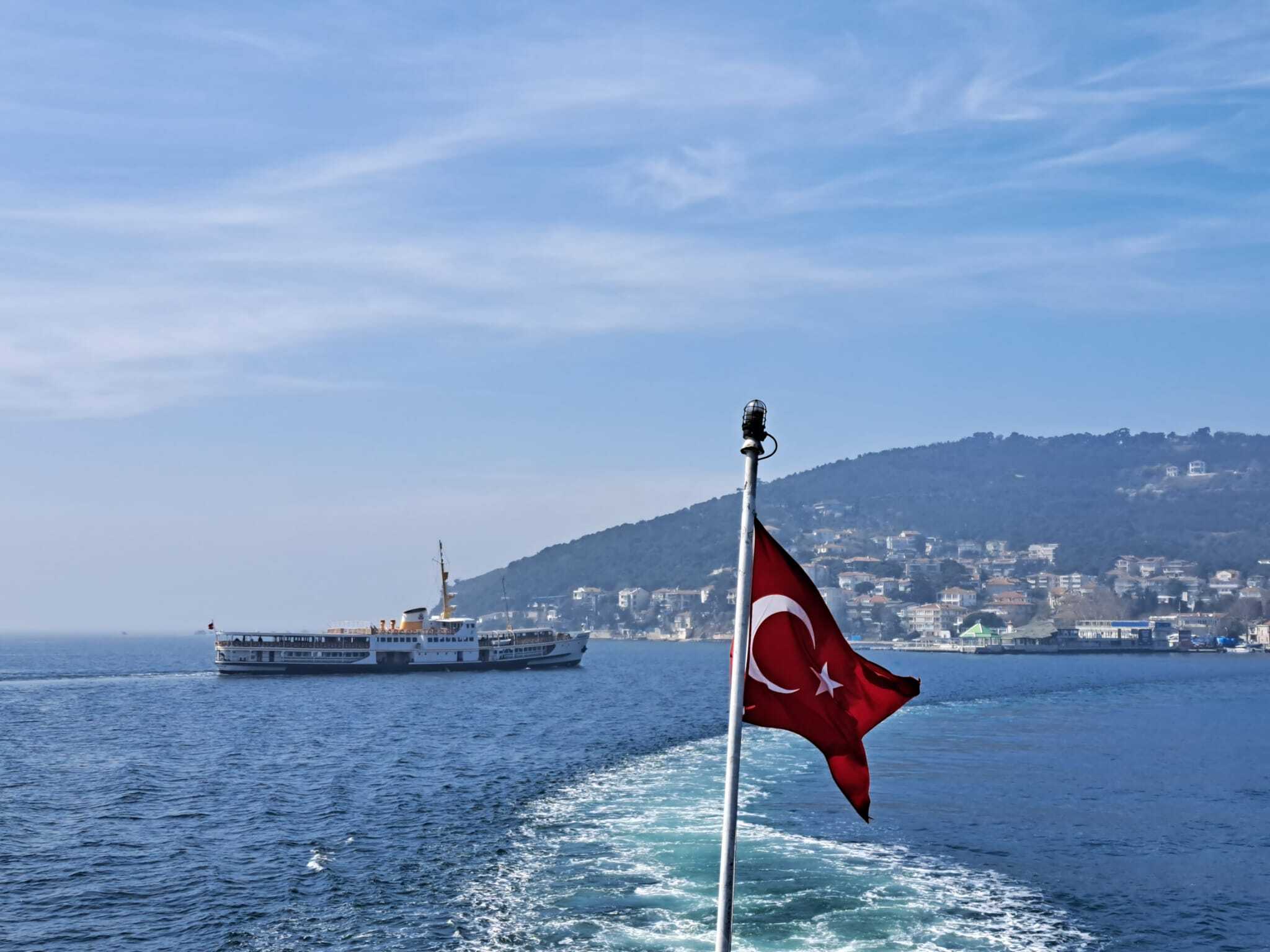One Foundation
FNF Connects - One Month in Istanbul

One Foundation
As part of the “One Foundation” programme, I had the opportunity to work in Istanbul for five weeks as a staff member of the Brussels office. This gave me insights into the local team’s work and also into a country that is an indispensable but very challenging partner of the European Union (EU).
Turkey in a Time of Uncertainties
The circumstances of my arrival were not easy. The country was mourning thousands of losses in the earthquake of the century, and all eyes turned to the region in Southeastern Turkey. This, of course, has had a significant impact on Turkish society and also on the staff and local partners of FNF’s Istanbul office. The humanitarian disaster also has domestic implications, especially as the sad event comes at a time of planned presidential and parliamentary elections, the outcome of which is uncertain.
The earthquake disaster affected the elections in several ways. First, it needed to be clarified for several weeks when the elections would take place. There were fears that the elections, initially expected in May, would be postponed to the autumn or even next year. Proponents of a postponement argued that it was not reasonable to engage in active politics in such difficult times but that the focus should be on mourning and humanitarian relief. However, the Turkish constitution allows a postponement only in case of a declaration of war, which the Parliament can only do. Moreover, the country has never postponed an election in its history. Secondly, there are critical logistical issues related to the participation of earthquake victims in the elections. Thousands of people have moved to other cities and thus have no permanent residence. This made it questionable whether they could participate only in the presidential election, which is not dependent on their place of residence, or also in the parliamentary election. Thirdly, critical voices towards crisis management and the implemented earthquake preparedness measures are increasing among the population. The criticism addresses problems at supervisory authorities, building contractors as well as in politics.
Despite these, during my stay in Istanbul, I observed some progress in preparing for the elections. One of the most important decisions is that there will be no postponement. President Recep Tayyip Erdoğan set the next parliamentary and presidential elections date for 14 May, as previously announced. This is slightly earlier than the regular election date of 18 June. According to the President, avoiding overlap with the start of the summer holidays, university exams and the annual Islamic pilgrimage was important.
For the elections, six opposition parties formed an alliance to defeat Erdoğan. Although the coalition almost broke up in early March, Kemal Kiliçdaroğlu, leader of the CHP party, was announced as the joint opposition candidate on 6 March. The narrowly avoided rupture shows that the opposition has entered into an alliance of convenience and must show unity in the election campaign to be perceived as an alternative to the current governing Justice and Development Party (AKP). However, within the alliance, a multitude of conflicts and differences of opinion exist. This was evident in the decision on the joint top candidate. There are still a few weeks to go until mid-May, and surprises are to be expected, as the hot election campaign phase is only just beginning.
I have experienced how important it is for the Turkish people that the EU does not forget their country, because the global defence of liberal values is not least decided in countries like Turkey.
Liberal Rays of Light in an Illiberal Sea
In a country where Erdoğan has been ruling for 20 years, the initial situation for organisations and citizens representing liberal values is challenging. The word liberal is used negatively by broad sections of society. Nevertheless, perhaps because of this, it was inspiring to meet the outstanding and committed FNF colleagues and partners. In conversations with them, I experienced how important it is for the people that the EU does not forget Turkey. Because the global defence of liberal values is not least decided in countries like Turkey.
My interlocutors often expressed the fear that even more people would leave the country after another victory of Erdoğan. In case of a government change, however, the EU and its member states, such as Germany, would also have to consider how they could support Turkey, a long-time EU candidate, to return to liberal and European values such as democracy, the rule of law and freedom of the press, and how cooperation could be shaped in the future. For this reason, it was encouraging to observe the determination of Turkish liberals and their struggle for fundamental human rights and European values. They are working under politically adverse conditions but are approaching the coming elections with cautious optimism.
Let Us Continue to Fight for Freedom Together
As a new FNF staff member, my stay in Istanbul helped me get to know the Foundation’s international work better. It was fascinating to experience the changes related to the elections and to witness the hope with which my colleagues and their project partners observe and accompany the political processes. Nevertheless, the election will be an enormous challenge, and I keep my fingers crossed for Turkish civil society and liberal actors to achieve more freedom and democracy. As Europe, we should not forget that European values and democracy are being defended here and that their strengthening will improve Turkish-European relations, which we urgently need, among other things, on human rights and security issues. Now I am returning to Brussels with a wealth of experience and ideas for future projects and cooperation opportunities. I thank my FNF colleagues for the opportunity and hope that we can implement joint projects in the spirit of “One Foundation” that make a positive contribution to Turkish-European relations.
